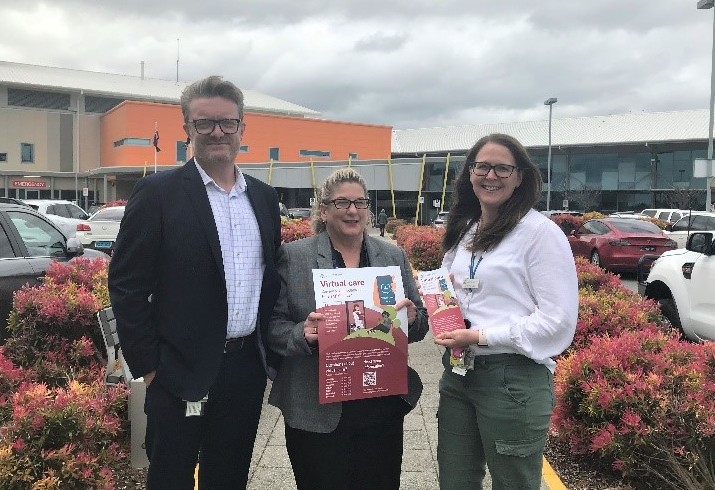Telehealth keeping families together

A cancer diagnosis can be life changing. But thanks to telehealth technology, WA Country Health Service (WACHS) is able to provide country communities a sense of normalcy on the road to recovery.
One Great Southern woman was able to enjoy a relaxing country holiday with family despite her diagnosis and surgery in December 2021.
“I had just come out of surgery, it was almost Christmas and the family were tired and just wanted a break where we could all spend some quality time together,” she said.
“We managed to book accommodation in Hopetoun when I received a letter for a face-to-face appointment with my oncology consultant in Perth – right in the middle of our holiday.”
But thanks to WACHS’ extensive telehealth network, Great Southern staff were able to coordinate a telehealth videoconference appointment from Hopetoun Home and Community Care Centre to ensure their family holiday could continue without a hitch.
“It was fantastic that my husband and daughter were able to be with me during my consultation. Which would not have been possible otherwise.
“Over the course of my treatment I have had numerous phone and video consultations with the radiation oncology team in Perth, allowing me to stay close to home which has made the whole process easier.”
From 24 to 28 October, WACHS is marking Telehealth Awareness Week by shining a light on the life changing stories made possible by harnessing telehealth technology.
Over the past decade, telehealth and virtual care have transformed the country healthcare landscape, enabling better access to services closer to home.
Through videoconferencing technologies, WACHS is able to support its extraordinary frontline staff to deliver emergency and specialist care to patients without the need to travel hundreds of kilometres.
By embracing advances in technology, WACHS is able to better support teams on the frontline and provide care close to home for patients.
Whether it’s for rehabilitation, emergency care, birthing or palliative care, telehealth has ensured staff and patients across the Great Southern feel supported no matter the situation and in turn has reduced the number of patient transfers.

